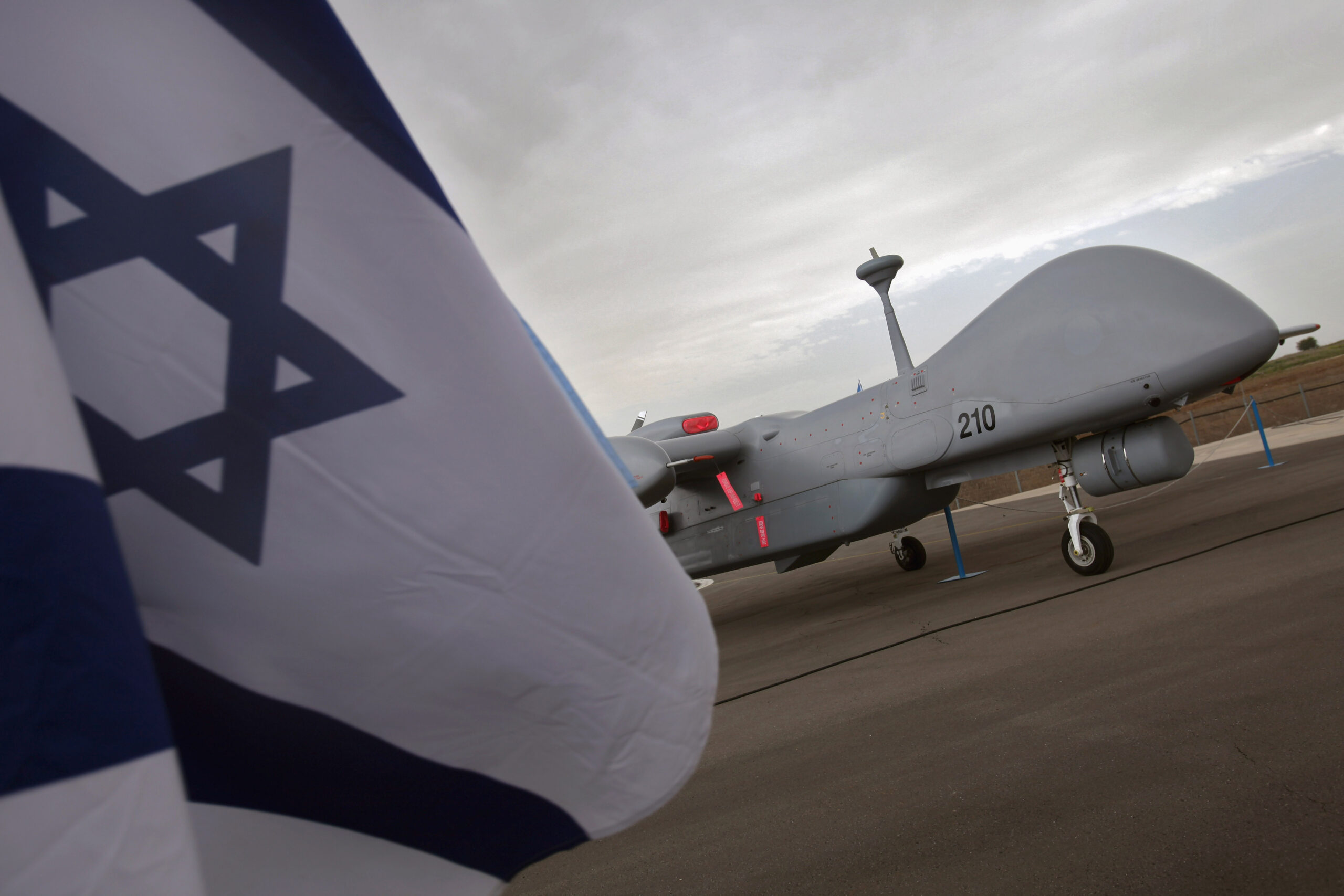
Israeli industry feels sales of drones, like the Heron UAV, could be expanded. (David Silverman/Getty Images)
TEL AVIV: Israeli defense firms, wary of seeing their unmanned aerial vehicle (UAV) market share drip away to rival producers, are pushing Israeli government officials to drop its adherence to technical limits placed on military drones through the Missile Technology Control Regime, or MTCR.
Government officials have not made a decision yet, according to multiple industry and defense sources, but are feeling growing pressure from local industry over the issue. Should the government of Prime Minister Naftali Bennett agree to such a move, it would likely seek out political approval from Washington.
The MTCR is an agreement among 35 nations governing the export of missiles and UAVs. Under the terms of the MTCR, any “category-1” system capable of carrying 500-kilogram payloads for more than 300 kilometers faces major export hurdles — the home country may still decide to export it, but it requires an extraordinary case.
The MTCR was first signed in 1987, with a focus primarily on missile technology. While Israel is not a member of the MTCR, it has broadly followed the guidelines as a political favor to the US.
Proponents of changing the MTCR have argued for several years that the agreement was never designed with today’s modern drones in mind — systems that are designed for re-use and surveillance, not one-way trips that end in explosions.
That argument gained steam under the Trump administration, which in 2020 declared that UAVs flying at speeds below 800 kph will no longer be subject to the “presumption of denial.” The goal was to open up international sales for US systems like the MQ-9 Reaper and the RQ-4 Global Hawk.
Until now, Israel has continued to follow the stricter MTCR guidelines, and as a result have developed less-capable systems for export. The best example is the Israel Aerospace Industries (IAI) Heron TP-XP, with a 450 kg payload, which is less than half of the payload of the Heron TP used by the Israeli Air Force.
However, Israeli firms have seen increased competition from cheap, homegrown systems coming out of China and Turkey, and industry worries it can’t complete on the global stage while dumbing down its own capabilities.
2020 saw Israeli defense exports reach $8.3 billion, an increase of 13.7% compared to 2019. Of that 2020 total, 6% were drones, a healthy figure — but less than Israeli firms would like to see.
Industry sources claim that the Trump administration’s change in policy directly led to IAI and Elbit losing deals to American firms for UAVs (It is unclear if any American sales have been completed under the new US guidelines, which have remained in place under the Biden administration.) They also have a growing concern about Turkey’s Bayraktar TB2 system in particular, which has been tested in a number of military operations over the years and is seeing growing demand. The TB2, while able to carry significant ordinance, has a public range of less than 300 KM, meaning it is not subject to export restrictions.
As one industry source put it, “We cannot play according to these rules anymore, when everybody else just goes wild.”
Michael Horowitz, a drone expert and director of the Perry World House at the University of Pennsylvania, said that as a non-member of the MTCR, Israel could simply change the rules it follows if it so desires.
“It’s not surprising, as the drone export market evolves, that Israel, in response to substantial Chinese and Turkish exports over the last several years, would seek to claw back market share,” he said. “Many of Israel’s most prominent drones for export, like the Heron TP, are Category I drones under MTCR guidelines, and Israel may believe that countries might prefer those systems over what other countries offer, if they are available.”






















